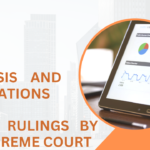General liability insurance is a crucial coverage for all types and sizes of businesses. It protects companies against claims of bodily injury, property damage, personal injury, and advertising injury. Without proper general liability protection, businesses put their assets at severe financial risk. This article will examine everything business owners need to know about securing the right general liability policy.
Thank you for reading this post, don't forget to subscribe!What is General Liability Insurance?
General liability insurance provides coverage for legal liabilities that businesses may incur through their operations, premises, products, or services. It covers costs related to:
- Bodily injury (BI) – Covers injuries, sickness, disease sustained by a 3rd party.
- Property damage (PD) – Covers damage to 3rd party property caused by your business operations.
- Personal injury – Covers libel, slander, false arrest, invasion of privacy.
- Advertising injury – Covers copyright infringement, misappropriation, false advertising.
Basically, GL insurance protects your business whenever claims allege you harmed a person, their property, or reputation. It pays for legal defense, court costs, investigations, settlements, and judgements.
Why is GL Insurance Vital for Businesses?
Maintaining adequate GL coverage is a must because:
- It covers costly legal bills to defend against allegations.
- It pays judgements in the event you are found legally liable.
- It protects your assets like property, equipment, and inventory.
- It covers medical bills for legitimate injury claims.
- It helps you avoid business-crippling lawsuits.
- Clients and vendors may require you to carry GL as a condition of doing business.
Don’t take risks – invest in robust GL insurance customized for your needs.
What Does General Liability Insurance Cover?
General liability policies cover a wide range of common exposures:
- Customer bodily injury on your business premises – e.g. slip and fall accidents, food poisoning from products served, etc.
- Damage to vehicles or other property occurring on your premises.
- Harm accidentally caused during business operations offsite.
- Product defects, flaws, or errors causing bodily injury or property damage.
- Accidental copyright, trademark, or patent infringement.
- Mental distress, damage to reputation, libel, slander, invasion of privacy.
- Costs to legally defend the policyholder if sued.
General liability protection ranges from $1 million to $5 million, sometimes higher. Be sure to assess your specific risks when determining appropriate coverage limits.
Who Needs General Liability Insurance?
Any business that interacts with customers, the public, or clients should carry GL insurance. Examples include:
- Retail stores & restaurants – Slip/fall injuries on premises are common. Food services also risk food-borne illnesses.
- Contractors & construction companies – On-site accidents and property damage exposures are high.
- Consultants & service providers – Risk being sued for negligent advice, errors, or omissions that cause harm.
- Event centers & entertainment venues – Must cover injuries to patrons on premises.
- Healthcare providers – Malpractice liability is a constant concern.
- Manufacturers & distributors – Product defects result in frequent liability claims.
- E-commerce companies – Face exposures like copyright infringement, web hacks, breaches.
Don’t wait until it’s too late – discuss GL insurance options with a commercial lines broker today.
What Does General Liability Insurance Not Cover?
It’s also important to understand exclusions with GL policies. Certain risks require separate coverage options like:
- Damaged or stolen property belonging to your business – That falls under property insurance.
- Building or leasehold damages – Also covered by property insurance.
- Vehicles used for business – Requires commercial auto insurance.
- Statutory workers compensation – Mandated for employee injuries at work.
- Professional errors and omissions – Needs professional liability coverage.
- Cyber incidents like data breaches or network damage – Requires cyber insurance.
- Intentional illegal acts – Policies exclude coverage for intentional misconduct.
Though broad, GL insurance does not cover every situation. Work with your agent or broker to fill coverage gaps with customized endorsements or separate policies.
How Much General Liability Coverage is Needed?
The ideal GL policy limit depends on:
- Your industry’s level of risk and past liability claims activity. Construction firms have vastly greater needs than local retailers for instance. Your broker can provide guidance based on your sector.
- The value of your business assets at stake. Higher revenues means greater potential for major liability verdicts.
- Contractual requirements. Large customers may stipulate minimum GL coverages in vendor contracts.
- Your risk tolerance. Higher limits mean greater premiums, but reduce your financial exposure.
- Expert input from insurance advisors familiar with your space. They know standards and norms to consider.
Also discuss sublimit – caps on coverages for categories like personal injury or advertising claims. Tailoring these appropriately contains costs while still meeting needs.
How Much Does General Liability Insurance Cost?
General liability insurance rates vary based on:
- Industry – Bars or construction companies pay much higher premiums than consultants due to high risks.
- Revenue – The greater the sales, the greater the chance of a large claim. Higher revenue equals higher premiums.
- Location – Insurance costs more in regions with bigger litigation threats and higher settlement amounts.
- Claims history – Clean loss run with few past claims results in lower rates. Frequency of claims drives up premiums.
- Number of employees – More staff mean increased chances for accidents and injuries.
- Deductible amount – Like other policies, opting for a higher deductible reduces monthly premiums.
- Discounts – Taking safety measures or risk management courses can qualify businesses for discounts.
Discuss your GL insurance options with a business insurance specialist to find cost-effective protection.
How to Buy General Liability Insurance
Follow these tips for purchasing the best GL policy:
- Use an independent insurance agent or broker that can quote from multiple insurance carriers to compare rates for the same coverage.
- Select an insurer that is financially stable with an A.M. Best rating of “A” or above. Avoid unknown insurers with poor financials.
- Work with an agent or broker that specializes in commercial lines. They will understand GL risks and exclusions better to customize the policy.
- Report all business operations and revenue accurately. Incorrect info can invalidate your policy if sued.
- Consider optional policy endorsements to fill coverage gaps like cyber liability, professional liability, equipment coverage, etc.
- Review your policy carefully upon receipt to ensure it provides the expected protections and limits.
Following these steps enables you to secure comprehensive and cost-effective general liability insurance customized precisely to your business needs.
Frequently Asked Questions
What happens if my business is sued and lacks GL insurance?
You would face paying all legal defense expenses and any settlement or judgement amounts awarded to plaintiffs out of your company’s own pocket. Most small businesses cannot financially survive major lawsuits without GL insurance.
Can I buy a combined business owner’s policy instead?
BOPs combine GL with property and other common coverages in one package. But they offer limited customization options. Purchasing standalone GL allows you to tailor limits, endorsements, and deductibles.
Is a certificate of insurance sufficient proof I have GL coverage?
COIs confirm coverage is in place but provide no details on types or amounts. Ask your insurer for a copy of the full GL policy to share with vendors or landlords instead. This allows them to verify you have adequate protections.
Can I purchase a GL policy to protect against a lawsuit I expect is coming?
No, companies cannot buy liability insurance coverage for claims that have already been threatened or filed. Policies only apply to incidents that occur after the effective coverage start date.
Final Words
General liability insurance is a foundational coverage for businesses of all types. It provides critical financial protection when companies cause harm to third parties like customers, vendors, or the public. Working with a savvy commercial insurance broker ensures you purchase customized GL coverage and limits that fully guard your business assets.










